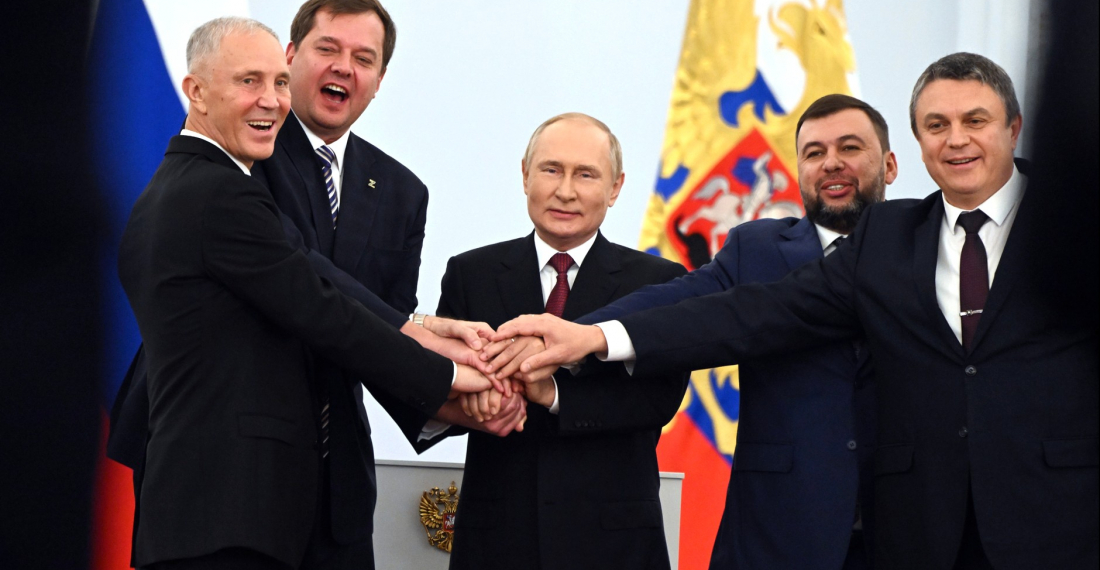Russian President Vladimir Putin presided over a ceremony at the Kremlin on Friday, (30 September) to formally annex Donetsk, Luhansk, Zaporizhzhia and Kherson regions of Ukraine into the Russian Federation.
"Congratulations! You have successfully cast your vote. I want the Kyiv authorities and their real masters in the West to hear me. People living in Luhansk and Donetsk, Kherson and Zaporizhzhia are becoming our citizens. Forever."
"We call on the Kyiv regime to immediately end hostilities, end the war that they unleashed back in 2014 and return to the negotiating table. We are ready for this ... But we will not discuss the choice of the people in Donetsk, Luhansk, Zaporizhzhia and Kherson. That has been made. Russia will not betray them", Putin told an audience of dignatries in the Kremlin.
In a speech filled with hostility towards the West, Putin said the US had created a "precedent" by using nuclear weapons against Japan at the end of WWII. Fears of nuclear war have grown since Putin said last week he was "not bluffing" when he said Russia was prepared to use nuclear weapons to defend its territory. He added that Russia would use "all the power and all the means" at its disposal to defend its new lands from attacks by the West or Ukraine.
The official annexation was widely expected following the votes that wrapped up on Tuesday in the areas under Russian occupation. Moscow claimed residents overwhelmingly supported that their areas should formally become a part of Russia. The EU, US and other countries have denounced the referendums as "illegal and rigged", saying they were clearly orchestrated by Kremlin. United Nations chief Antonio Guterres said it was a "dangerous escalation" that would jeopardise prospects for peace.
With the formal annexation of Kherson, Zaporizhzhia, Donetsk and Luhansk, nearly 15% of Ukraine's territory will become Russian territory, for now. Ukraine and western countries have vowed never to accept the annexation.






